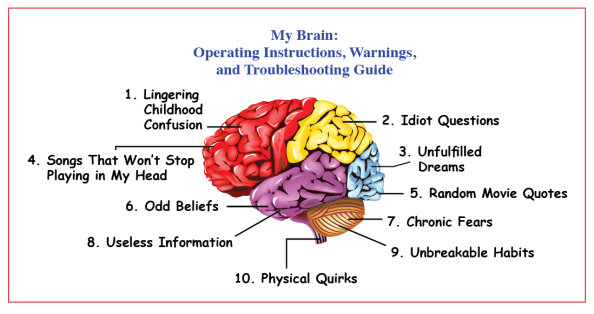 There are clear benefits to leaving your brain to science. For one thing, there’s no more sitting at traffic lights, having to go to the bathroom in the middle of a movie, or arguing with someone three continents away about the four-dollar mistake on your last bank statement. For another, you never get the hiccups.
There are clear benefits to leaving your brain to science. For one thing, there’s no more sitting at traffic lights, having to go to the bathroom in the middle of a movie, or arguing with someone three continents away about the four-dollar mistake on your last bank statement. For another, you never get the hiccups.
But there are problems, too. You’re submerged in a beaker filled with liquid chemicals, which is no doubt unpleasant until you get used to it, something like jumping into a cold swimming pool, or eating hummus for the first time. You may discover, too late, that you’re uncomfortable in confined spaces, or don’t enjoy out-of-body experiences. And it’ll be hard to hear what people are saying about you, especially when their backs are turned.
Most troubling is that you have little control over what the scientists will do with your brain. The worst outcome is that they won’t do anything. They’ll forget it’s there, and you’ll be left alone with your thoughts and recollections, stashed in a dusty storage room along with a collection of fern fossils, a few disemboweled frogs, a ten-month supply of latex gloves, and a stack of mismatched folding chairs. In that case I’d spend most of my time wishing I had legs, just so I could kick myself.
Only slightly preferable to being banished to a dark corner of the basement is the real possibility that the last remnant of your physical existence – and the part that most closely identifies who you were – will be assigned to a junior assistant lab technician who recklessly obliterates your entire high school career just to see if his knife needs sharpening. And what about the dissection itself? Neurologists claim that the brain cannot feel its own pain, but what would make them think otherwise? Once you remove the vocal cords, that cuts down considerably on the screaming.
The most famous brain, that of Albert Einstein, was preserved within hours of his death in 1955. Eventually carved into nearly transparent specimens and mounted on glass slides, Einstein’s brain is now the centerpiece of an exhibit at the Mutter Museum in Philadelphia.
While I understand the practice of analyzing paper-thin tissue samples, I fear that the true wonder of this amazing organ may be lost in the process. The magic of the brain is its complexity — the connections it creates and maintains – and that requires wholeness. What happens when you chop it all apart and line the slices up in rows inside a box? I’d think it would produce a distorted picture. There’s slide 27 directly across from slide 68, two sections of the brain that had never before been anywhere near each other. And how does that affect you, the poor owner of this brain, presumed inanimate but somehow still perceiving? Suddenly, the memory of your honeymoon on Easter Island is sandwiched between your third-grade class trip to the arboretum and the time you ran into a tree at summer camp while struggling to escape from Bigfoot. After a lifetime of trying to make sense of the world, the meager progress you made is now completely gone.
Can such confusion be prevented? A tiny spark of optimism compels me to assemble these few pages, so that they may serve as a helpful reference for anyone destined to be involved in the study of my brain. But I’m also a realist, fully aware that washing machines and toaster ovens come with instructions, and in the history of the universe no one has ever bothered to read them. I can only hope that if I’m going to be whittled, dyed, and catalogued, the people in charge will be curious enough to do at least a little preliminary research.
• Almost everyone I know wears eyeglasses. Has our vision deteriorated over the centuries? I can’t imagine why it would. Rather, I believe that before glasses were invented, people huddled around a fire after dark and attempted to read the latest hand-written scrolls. During the day, suffering from eyestrain, they walked around tripping over rocks and falling into ditches. They also had to stand very close in order to see who they were talking to. Most conversations began with, “Gregorius? Is that you?”
• As the population rises, cities will be forced to expand vertically, with skyscrapers several miles high. For the same reason, humans will grow taller, accessing the formerly-unused space above their heads. Within two hundred years, the average height will be nineteen and a quarter feet, making pants much harder to fold, and basketball much less interesting to watch.
• Animals can count just as well as we can. If you don’t agree, the next time you see a female mountain lion with six or seven cubs, try snatching one of her babies when she isn’t looking.
7. Chronic Fears
• That the songs that won’t stop playing in my head really never stop – that every song I’ve ever heard is, in some obscure track of my brain, running continually and providing the disturbing soundtrack for most of my dreams.
• That instead of neglecting my inner child, I’ve been allowing him to call the shots all this time. This would explain my tendency to watch television while lying on the floor eight inches from the screen, as well as a strong affinity for peanut butter and jelly sandwiches and Froot Loops, and a powerful urge to flee important meetings and play kickball in the hallway.
• Any alligator or crocodile, even the ones that are dead, or made of plastic.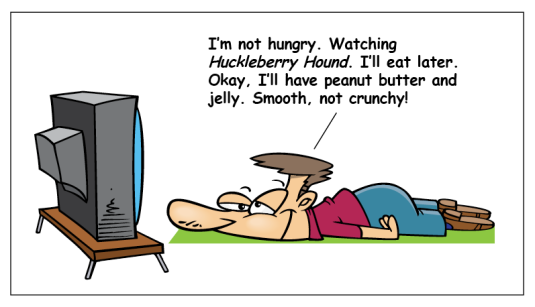
8. Useless Information
• There is no country whose name starts with the letter X.
• There are more than six hundred kinds of pasta. So far, I’ve had only about twelve.
• The word trivia came from ancient Rome, and referred to the intersection of three roads.
• Half of a whale’s brain remains conscious while the other half rests, allowing it to go to the surface for air and avoid drowning when asleep.
• The 1962 New York Mets had two pitchers named Bob Miller.
9. Unbreakable Habits
• During power failures, I continue to flip light switches on and off.
• I cut old credit cards into small slivers and scatter them into separate bags when throwing them away. Sometimes I’ll even drive a few of the pieces to a different location.
• When mailing something, I always double-check that the envelope went down, because the next person who comes along would like nothing better than to steal my check made out to the phone company.
• My day has not officially begun until I’ve smashed a toe or finger with some solid, immovable object. This minimum daily requirement of physical pain may be attained through clumsiness, lack of attention, or sheer stupidity. I’ve been known to reach my weekly quota within a forty-eight-hour period. Currently, my record for cracking a knee on the corner of the coffee table in a single afternoon is five.
• I’m unaware of the tension in my body. When a chiropractor, nurse, or fitness instructor tells me to relax my shoulders, I have no idea what they’re talking about or how to do it. I can’t even feel my shoulders. In fact, I’m pretty certain that every part of my body is as relaxed as it’s ever going to be.
• I’ve never seen the center of my back, not even in photographs. It’s been following me around for almost six decades, but I don’t know what it looks like.
• If you happen to be the junior assistant lab technician and you need to wash my brain, please do not use soap, because it really burns, especially around the occipital lobe.
And one last thing:
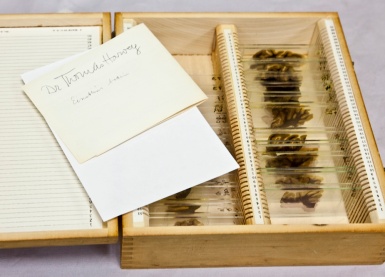


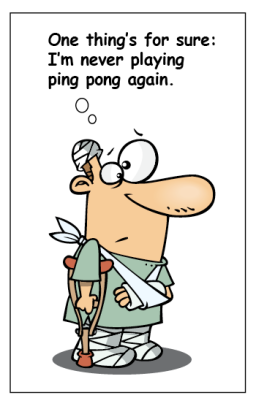
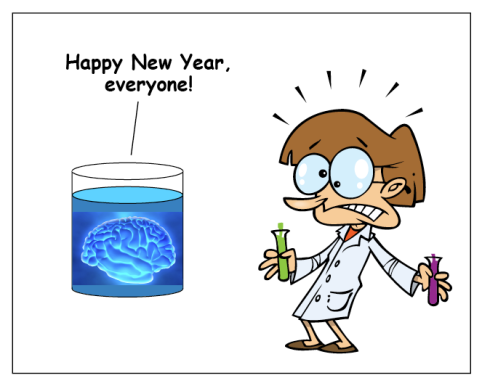




Val
December 30, 2012
I have all of #9 and the first of #10 (with the exception of driving to throw away the bits of the credit card, as I don’t drive, but I’m sure that if I did, I would.)
I’ve (literally) taped a large piece of foam rubber to the right side edge of my desk because I’d badly injured that knee so many times on it before.
Tell me, Charles – do you sleep at night? And if you do, what the hell happens to your brain? D’you think maybe it goes floatabout by itself, by any chance? I think it might…
Great post as ever.
LikeLike
bronxboy55
December 31, 2012
I think the foam rubber is a great idea — only we should tape it directly to our knees, and any other bony parts that tend to hurt when struck against hard things.
I’ve been sleeping pretty well lately, although every few months I go through periods of difficult sleep that last for several weeks.
Thanks, Val.
LikeLike
creatingreciprocity
December 30, 2012
Compelling point about the centre of your back. Reading it I realise I have never seen mine either. Maybe these back parts don’t exist? This realisation has made me backgnostic….
Happy 2013, Charles.
LikeLike
bronxboy55
December 31, 2012
I’m always a little shocked when I have an x-ray taken and I realize that there’s an actual skull and skeleton inside there. It seems weird. Internal organs, too — I don’t even know where most of them are.
Thanks for the comment, Trisha. Happy New Year.
LikeLike
Elyse
December 30, 2012
Charles, I think that if you leave your brain to science, future generations will marvel at it. They will also say, “HUH?”
I loved this line: I’d spend most of my time wishing I had legs, just so I could kick myself.
I (seriously) want to leave my body to science — because I am a fake scientist. Perhaps I could just get them to take my brain and drive it cross country.
LikeLike
bronxboy55
December 31, 2012
How are you a fake scientist? I wonder if you’ve written about that, because it sounds like it would make a great post.
LikeLike
Elyse
December 30, 2012
Happy New Year, Charles!
LikeLike
bronxboy55
December 31, 2012
The same to you, Elyse.
LikeLike
cat
December 30, 2012
I tend to not care about anyone’s opinion too much … because, when it comes down to it … all that counts is your own opinion … have not experienced many backups from anybody … we are a community in a way, but we are also utterly alone … Great article though, C … Have a very Happy New Year, my friend … still love your profile pic so much … Always, cat.
LikeLike
bronxboy55
December 31, 2012
I hope things get better very soon, cat, and that the new year is a happy one for you. I tried leaving a comment on your latest post, but as always, I can’t tell if it went through.
LikeLike
magsx2
December 30, 2012
Hi,
A Very Happy New Year to you and your family as well. Enjoy. 🙂
LikeLike
bronxboy55
December 31, 2012
Thanks, Mags, and the same to you. How have you been?
LikeLike
The Wanderlust Gene
December 31, 2012
Fun post! I’m sure you’ve read Roal Dhal’s subversive “William and Mary” – the first time I encountered this literary device.
LikeLike
bronxboy55
December 31, 2012
I had not heard of it, but I just found it online and read it. What a great writer Roald Dahl was. His story perfectly describes the maddening discomfort I feel when I consider such a procedure.
LikeLike
The Wanderlust Gene
January 1, 2013
Ahhh 🙂 So glad you read it! For me it was the evil glee of beleaguered Mary, puffing cigarette smoke in his direction, saying things he’d always jumped on her for saying …
You’re right, he was a tremendous writer, bronxboy. I used to have a book of the complete short stories – a favourite travelling companion, his dark, macabre sense of humour the perfect antidote to too much awe and wow.
LikeLike
Rufina
January 3, 2013
I found it too, and read it, with a growing fascination and sense of foreboding…makes you wonder about how this case would be ruled in a court…Was Mary really a widow after all? Such a wild premise! Now, imagine if the heart that could be kept alive without the brain instead? Much controversy around cellular memory and whether it exists or not. All of it is so very interesting!
http://theophanes.hubpages.com/hub/Cellular-Memories-in-Organ-Transplant-Recipients
LikeLike
The Wanderlust Gene
January 3, 2013
Howdy hi, Rufina. Delighted to have sent you on wild imaginings … My goodness, lets not go there, the mind boggles at the possibilities – when is a person a specific person, and so on … 🙂
LikeLike
knotrune
December 31, 2012
I watched a documentary the other day about Flinders Petrie the famous archaeologist. He left his brain to science; his wife flew back to England with his head in a hat box on her lap. It has never been studied and languishes in a basement somewhere, probably glaring at the fossil ferns! But maybe it is waiting for a time when it can be studied without having to be sliced up.
Love the trivia and the whale’s brain. I wonder if each half has a different personality like ours do? So when whales meet they have to not only figure out which whale they are meeting, but which version of that whale it is. I wonder if both halves are ever awake at the same time? Then do they become indecisive about which way to swim?
I agree about short sighted people in the past, I’m sure that’s how beautiful manuscripts like Lindisfarne came about. And that must be why they didn’t teach soldiers to read; especially archers I guess. Also I read it was true in China as they take a lot longer to learn to read and that’s why their art focusses on one beautiful branch of blossom with a blurry background. Animals do have a number awareness; crows can count up to about 7.
LikeLike
bronxboy55
December 31, 2012
I like your use of the word languishes It suggests that the brain is waiting for something to happen. And maybe it is.
I have more questions about the whales, too, and dolphins. For example, does the sleeping half of the brain dream while the other half is awake, and if so, what is that like?
No surprise that crows can count. I recently read a book about ravens, and it’s obvious that brain size doesn’t correlate to intelligence, at least not the way we used to imagine.
Thanks for the great comment.
LikeLike
knotrune
December 31, 2012
I think the size of the join between the two halves of the brain in a whale would be interesting. If they are not very attached then each half might be relatively unaware of the other half, but if there is a very wide join then they might be aware of each other. It would be wild to be able to watch a dream! Mine are certainly interesting, but I wonder what whales dream about. Probably swimming, but who knows, maybe one day we’ll invent something to record dreams, even animal dreams. That would sell well. Imagine being able to plug your brain in for the night and dream of being a dolphin. Nobody would have insomnia any more. But maybe nothing would get done either.
LikeLike
bronxboy55
January 2, 2013
I don’t think that day is far off. And if you can plug into dreams, why not use sleep time to learn? Maybe we’ll be able to share thoughts and feelings with each other by connecting brains directly. It sounds a little scary, but imagine the possibilities. It would make Skype look like cave paintings.
LikeLike
knotrune
January 2, 2013
The best outcome of that would be to encourage empathy. People could literally walk a mile in each others’ shoes, spend a day or a month trying to cope with sickness or caring for the elderly or living on a tight budget. Cruel people would be punished by having to live the torture they did to others. But it could also be abused of course. And although passive learning would be very useful, it could also sap all the fun out of life – school where the kids never get time off even to dream! I should try to write a novel set in such a world 🙂
LikeLike
Allan Douglas (@AllanDouglasDgn)
December 31, 2012
I suppose this would be the exact opposite of a mindless blog post. Bhahahaha. Ummm… sorry. I love the map of brain function, it’s probably much closer to truth than the ones I’ve seen before. When I die I’m going to leave my body to science fiction.
Perhaps we could improve the collective population’s eyesight by outlawing glasses and scattering tigers on our city streets. I know I wouldn’t last ten minutes without my glasses or contacts because I’d fall off of something and break my neck.
Thanks for this collection of snorts & giggles to start my day.
LikeLike
bronxboy55
January 2, 2013
Maybe the only reason we live longer now is that we can see things more clearly, like the tiger or the bus coming right at us.
Thanks for the comment, Allan, and Happy New Year.
LikeLike
earthriderjudyberman
December 31, 2012
I can relate to your #9 and the part in #10 about banging my knee on my desk. You’d think I’d learn. If I donated my brain to science, my fear is it would wind up being labeled “Abby Normal” (“Young Frankenstein”) and ignored.
Happy New Year to you and yours, Charles. I look forward to reading more of your entertaining and thoughtful stories in 2013.
LikeLike
bronxboy55
January 2, 2013
Your brain is definitely abnormal, but in a good way. You have the ability to see things from a slightly different perspective — just different enough to give your readers a fresh glimpse. Thank you, Judy, for all of your encouragement.
LikeLike
earthriderjudyberman
January 2, 2013
Thank you for that, Charles. Coming from you, that’s high praise indeed.
LikeLike
dearrosie
December 31, 2012
I also relate to #9. After someone got hold of my friend’s check made out to the phone company and somehow washed out everything except the signature and gave themselves a very nice shopping spree at Ralphs Supermarket – I check several times to make sure my letter has dropped through the mail box.
Interesting background to trivia. Tri -via does = 3 roads – but how did it come to get the meaning we’ve given it now?
I dont know how many kinds of pasta I’ve eaten. When we were in Piedmonte the local pasta was called “plin” and every few miles it would be totally different. I know because I ordered it at every restaurant we went to.
oops I nearly forgot: a very HAPPY healthy New Year to you and your family. 🙂
LikeLike
bronxboy55
January 2, 2013
I’m pretty sure I read that the word trivia came from the small talk and relatively unimportant information that was exchanged when people encountered each other at the intersection. It sounds plausible, but really, who knows?
Pasta and gelato — that’s all we need.
Happy New Year to you and Mr. F, Rosie.
P.S. I hope the newlyweds are doing well.
LikeLike
dearrosie
January 2, 2013
PS They are – you’re so kind to ask. What about the newlyweds over by you?
LikeLike
bronxboy55
January 2, 2013
They’re doing well, too.
LikeLike
icedteawithlemon
December 31, 2012
And now that I have read both Part I and Part II, I realize I can’t possibly limit my request to just one area of your brain, and I am officially requesting one–just one!–brain cell from each section! I promise to make good use of the donated cells, and if by some amazing stroke of luck I receive the cell that controlled your inner child, I promise to nurture it with daily doses of peanut butter, Fruit Loops, The Jetsons, and death-defying bicycle rides around the neighborhood. (Happy New Year to you, too!)
LikeLike
bronxboy55
January 3, 2013
Thanks, Karen. But how did you know about The Jetsons? And the death-defying bicycle rides?
LikeLike
morristownmemos by Ronnie Hammer
January 1, 2013
How do we know that this really is a New Year? Just because the media says so? Listen up, friends; it’s still 1866 and THOSE are the songs that I can’t get to leave my brain. “The Union Forever, dah DA dah da da!”
LikeLike
bronxboy55
January 3, 2013
You might be right, Ronnie. And now I’m looking forward to President Andrew Johnson’s State of the Union speech.
LikeLike
Marie M
January 2, 2013
BronxBoy, I love reading your blog and also the comments of your other readers. All the best in 2013 to you and yours and all who visit here!
LikeLike
bronxboy55
January 3, 2013
Thank you, Marie. I’m sorry I let the holidays slip by without getting in touch. I hope you had a wonderful Christmas, and that we’ll talk often in the new year.
LikeLike
JSD
January 3, 2013
Great thoughts…though I thought they were mine originally. Now I see you and many others have them, too. Thanks for the laughs…and Happy New Year!
LikeLike
bronxboy55
January 3, 2013
Don’t feel bad, JSD. People are always stealing my ideas, too, usually before I’ve even had a chance to think of them. Happy New Year.
LikeLike
Michelle Gillies
January 3, 2013
I read this, “Neurologists claim that the brain cannot feel its own pain, but what would make them think otherwise?” and had an immediate visual flash of the scene in one of the “Silence of the Lambs” movies (I think the “Hannibal” one) that depicts Ray Liotta sitting at the dinner table with the top of his skull cut off and his brain exposed. He is sitting there eating his own brain that has been prepared for him by Mr. Lector. He is unaware and does not feel any pain. This image is now looping in my head. Thank you.
LikeLike
bronxboy55
January 3, 2013
Don’t mention it, Michelle. And speaking of loops, I just left a comment on your most recent blog post. We must be in sync! (I wouldn’t go around bragging about that if I were you.)
LikeLike
Michelle Gillies
January 3, 2013
I was just reading that.
I won’t tell if you don’t.
LikeLike
Weathered Priya
January 4, 2013
“Gregorius? Is that you?” Where did you find the name, Charles? Or are we going to find that out in our collective unconscious?
LikeLike
bronxboy55
January 5, 2013
I searched for lists of old names and that one jumped out at me. Did you like it?
LikeLike
Weathered Priya
January 9, 2013
I think of it when I think of old names.
Have you read about the ‘collective unconscious’? I find it quite fascinating.
LikeLike
bronxboy55
January 9, 2013
It came up a lot when I took Philosophy and Theology courses in college. I still have the textbooks — maybe I’ll read about it today.
LikeLike
She's a Maineiac
January 4, 2013
Charles?…is that you?
I do have eyeglasses. I just am in denial I should be wearing them. Is this why I am constantly knocking my knee on the coffee table?
I laughed so hard at your line: I can’t even feel my shoulders. I am the same way! I don’t even realize that most of the time, my body is so tensed up my shoulders are up to my ears. Once a chiropractor tried to force them down and I think he hurt himself and had to go see a chiropractor.
LikeLike
bronxboy55
January 5, 2013
Serves that chiropractor right. They’re always pushing us around.
I smashed my right foot twice this morning, and cracked the back of my hand on a doorknob. There are too many things here.
LikeLike
albertgenau
January 5, 2013
Reblogged this on albertgenau.
LikeLike
bronxboy55
January 5, 2013
Thank you, Albert. I really appreciate it.
LikeLike
Sandra Parsons
January 6, 2013
Having just crossed over from pregnancy dementia to breastfeeding dementia, I can relate. Although I found that having children makes me somewhat more nimble when it comes to catching falling objects (i.e. babies) or preventing things (i.e. toddlers) from bumping into other things (i.e. door frames, couch tables, walls etc.). Maybe because I don’t think anymore before I act?
In any case I think donating your brain to science would be a very charitable thing to do as, judging by the funny ideas it regularly churns out, it is quite a remarkable specimen and the world could definitely benefit from that! All the best for the new year for you and your brain.
LikeLike
bronxboy55
January 9, 2013
Reflex and instinct are amazing things, aren’t they?
I have a feeling my brain would be a pretty dull thing to study, Sandra. But if you’ll do it, I will, too. It could be like one of those “Buy One, Get One Free” sales. What do you think?
LikeLike
Sandra Parsons
January 9, 2013
Oh, but my brain would be free for science anyway. You see, I am a biologist, so I try to be nice to my fellow scientists by donating my brain. It’s a bit like inheriting debt I’m afraid but I do what I can.
LikeLike
Patti Kuche
January 7, 2013
I much prefer the thought of Einstein’s whole brain, sitting in a jar if only to get a sense of awe and wonder of overall size, was it big or small, therefore quality over quantity?
This whole subject has been floating about in my tiny brain since reading your wonderful companion piece Part 1. . . .
LikeLike
bronxboy55
January 9, 2013
I don’t know that there’s anything remarkable about Einstein’s brain, Patti. Some scientists have claimed certain things about parts of his brain, but it’s hard to know if those claims were based on preconceived ideas. Would they have come to different conclusions if they hadn’t known whose brain they were studying? They mystery of genius is going to remain a mystery for a while longer, I think.
LikeLike
Earth Ocean Sky Redux
January 7, 2013
My family would tell you I’m uber-guilty of #5. Not random movie quotes. Worse. Random Friends quotes. Like, do you remember when Ross said to Rachel….
Mr. EOS is the King of #8, but that bodes well for him when we play trivia games or watch Jeopardy together.
And shouldn’t it be Freud’s brain that’s at the Mutter Museum???? 🙂 Get it? Mother. Mutter.
Happy 2013. Happy travels. Happy Blogging.
LikeLike
bronxboy55
January 9, 2013
I think they wanted to exhibit Freud’s brain, but he wouldn’t let them. He was pretty neurotic that way.
Happy 2013 to you too, EOS. I’m glad we’re back in touch.
LikeLike
Bruce
January 16, 2013
Speaking of Albert Einstein, he is quoted as saying “I have no special talents. I am only passionately curious”. In that theme, it may be that you can at least resolve the centre of your back issue. I, for one, have seen the centre of my back in a photo and mirrors. With that prompt, I quickly realised I have not seen the top of my head ( a big ask prior to mirrors or cameras). I’ll see if I’m curious enough to change that.
Five times on the coffee table in one afternoon makes me feel better about hitting my left thumb with a hammer, three times over 5 minutes. It was a short nail, now I have a crook thumb nail.
A great finishing post Charles. Can you tell me from which movie comes the quote “keep the change, you filthy animal”?
LikeLike
bronxboy55
January 16, 2013
I’ve never seen the top of my head either, Bruce. But somehow I occasionally see it in a dream, the one where I’m losing my hair.
The quote is from Home Alone. It’s in the scary movie Kevin is watching on television, right before the burglars show up.
LikeLike
Barbara Rodgers
January 24, 2013
Catching up with some of my favorite blogs today – I was chuckling reading this post until I got to the nearsighted early humans. Suddenly an out-loud laugh caused the nice warm tea I was sipping to come spraying out of my mouth and onto the keyboard… You described life in the morning around here, tripping up or down the stairs, stumbling over chairs, wobbling around the kitchen groping for things that might be food – “Gregorius? Is that you?” LOL!!!
LikeLike
bronxboy55
January 26, 2013
And their only source of light was torches. Imagine the blisters!
LikeLike